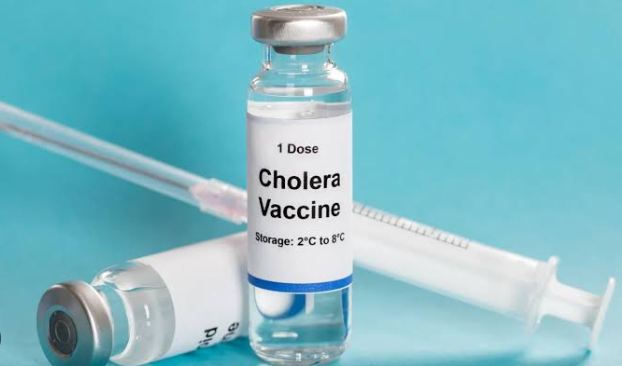By Joke Kujenya
A CHOLERA outbreak has swept through Lagos State, claiming the lives of five residents and admitting 60 others to healthcare facilities.
The affected areas include Eti Osa, Lagos Island, Ikorodu, and Kosofe. Health authorities are urging the public to exercise extreme caution and adhere to preventive measures to contain the spread of the disease.
Professor Akin Abayomi, Lagos State Health Commissioner, confirmed the fatalities and highlighted the urgency of the situation, attributing the deaths to severe dehydration in patients who sought medical help too late.
He emphasized that the state has activated heightened surveillance and response mechanisms, adding that the Ministry of Health’s Directorate of Environmental Health and the Lagos State Environmental Protection Agency (LASEPA) are currently investigating potential water contamination sources, particularly in the Lekki and Victoria Island areas.
“We are on high alert and have activated a statewide response to tackle this outbreak,” Professor Abayomi stated. “Investigations are ongoing to confirm the cause, and we suspect contaminated water as the primary source. Samples have been taken for confirmation.”
As of April 28, 2024, Nigeria has reported 815 suspected cholera cases and 14 deaths across 25 states.
The recent rains in Lagos have exacerbated the situation, leading to an increase in severe gastroenteritis cases, particularly in urban slums and densely populated areas with poor sanitation.
Prof Abayomi explained that Cholera is a highly contagious disease characterized by severe diarrhea and vomiting, leading to rapid dehydration and potentially death if untreated. It also spreads through the consumption of contaminated food or water and poor sanitation practices. Symptoms include severe watery diarrhea, vomiting, muscle cramps, fever, and, in severe cases, collapse.
Treatment for cholera involves rehydration using Oral Rehydration Salts (ORS) for mild to moderate dehydration, while intravenous fluids are administered to severely dehydrated patients under medical supervision.
Preventive measures are crucial in combating the spread of cholera. The public is advised to ensure safe drinking water by boiling, chlorinating, or using bottled water and to avoid ice made from untreated water.
Maintaining proper sanitation by using toilets, safely disposing of feces, and avoiding open defecation is essential. Good hygiene practices, such as regular handwashing with soap and clean water, especially before eating, preparing food, and after using the toilet, are also vital.
Professor Abayomi urged residents to remain vigilant and rely on information and guidance from the Lagos State Ministry of Health, the Nigeria Centre for Disease Control (NCDC), and accredited local health facilities for updates on prevention, treatment, and management of cholera, and noted that with the state’s proactive measures and the public’s cooperation, health authorities hope to contain the outbreak and prevent further loss of life.
At JKNewsMedia, our dedication to delivering reliable news and insightful information to our cherished readers remains unwavering. Every day, we strive to provide you with top-notch content that informs and enlightens. By donating to JKNewsMedia, you directly contribute to our mission of delivering quality journalism that empowers and informs. Your support fuels our commitment to bringing you the latest updates and in-depth analysis. Let's continue to uphold the highest standards of journalism and serve our community with integrity and dedication. Thank you for being a part of the JKNewsMedia family and for your ongoing support.





